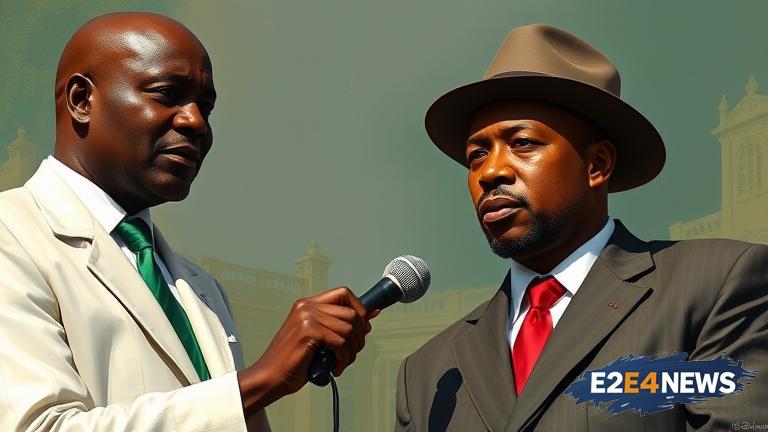The High Court of South Africa has made a significant ruling in a case involving comments made by Kunene about Julius Malema, the leader of the Economic Freedom Fighters (EFF) party. The court found that Kunene’s comments, which compared Malema to a cockroach, did not meet the threshold for criminal sanction. The ruling has sparked debate about the limits of free speech in South Africa. The case began when Kunene made the comments in question, which were widely reported in the media. Malema and the EFF took umbrage with the comments, arguing that they were defamatory and constituted hate speech. The matter was taken to court, where Kunene argued that his comments were protected by the right to free speech. The High Court has now ruled that while Kunene’s comments were certainly offensive, they did not meet the threshold for criminal sanction. The court found that the comments were not intended to incite violence or hatred against Malema or the EFF, but rather were a form of political satire. The ruling has been welcomed by some as a victory for free speech, while others have expressed concern that it sets a dangerous precedent. The EFF has announced that it will appeal the ruling, arguing that it undermines the fight against hate speech. The case has highlighted the complexities of balancing the right to free speech with the need to protect individuals and groups from harm. In South Africa, the Constitution enshrines the right to free speech, but also provides for limitations on this right in certain circumstances. The High Court’s ruling has been seen as an important clarification of these limitations. The case has also sparked a wider debate about the role of satire and political commentary in South African society. Some have argued that Kunene’s comments were a legitimate form of satire, while others have seen them as a form of hate speech. The ruling has been praised by some as a sensible and nuanced approach to the complexities of free speech. However, others have expressed concern that it will embolden those who seek to use hate speech to intimidate and harm others. The case is likely to have significant implications for the future of free speech in South Africa. It has also highlighted the importance of a robust and independent judiciary in protecting the rights of all citizens. The High Court’s ruling has been seen as a testament to the strength of South Africa’s democratic institutions. The case has also sparked a wider debate about the state of politics in South Africa. Some have argued that the case is a symptom of a broader problem of intolerance and polarization in South African society. Others have seen it as a reflection of the robust and vibrant nature of South African democracy. The ruling has been welcomed by some as a victory for the rule of law, while others have expressed concern that it will undermine efforts to promote social cohesion and reconciliation. The case is likely to continue to be the subject of debate and discussion in the coming weeks and months. The High Court’s ruling has been seen as an important milestone in the ongoing conversation about the limits of free speech in South Africa. It has also highlighted the need for ongoing vigilance and debate about the importance of protecting the rights of all citizens, while also promoting social cohesion and reconciliation.





